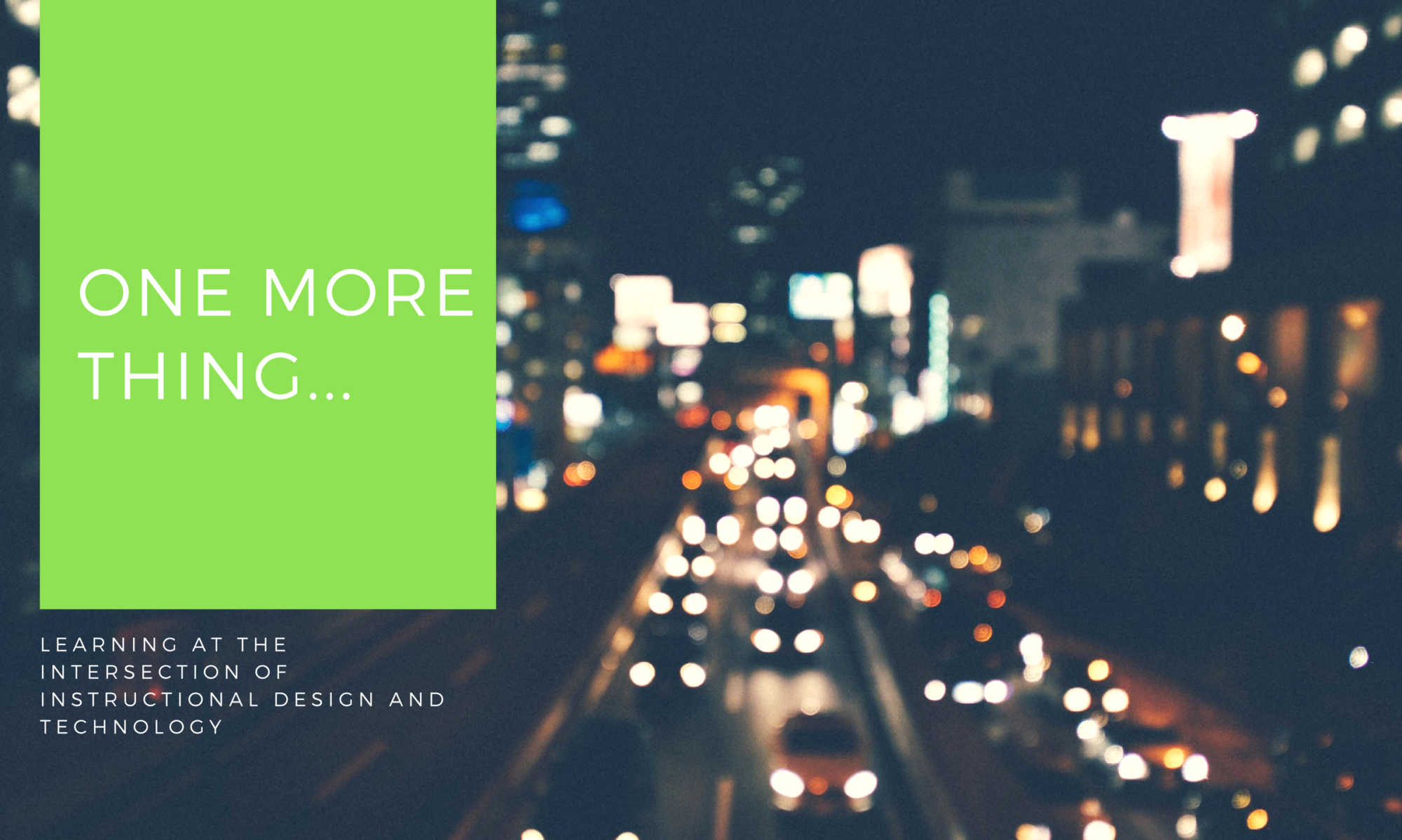 |
| CC image via flickr by Bethan |
Tonight I did something out of the ordinary. I sat down at my kitchen table and had dinner. No TV. No phone. No twitter. No music. Just the dinner plate, the food I prepared and me. If you’re wondering I slow-cooked pork tenderloin, added some potatoes and an array of spices along with some thyme that I picked from my still lingering windowsill herb garden. I promise, the coincidences in that dinner and this piece were not preconceived.
Typically, I will eat at the coffee table while watching television. I usually watch a DVR program while I blindly shovel food into my mouth. Sometimes forgetting entirely what I just consumed. Sure, the tastes are there, but so are the phone, the television, the iPad and numerous outlets to trending topics happening instantaneously around me. If the food were my significant other, our relationship would surely be on the outs.
I think about the ability to focus and what the future of the learner holds in a culture that is enamored with gadgets and instantaneous information. While I embrace this culture and think a lot of good can and has come from it, I fear for an unfocused future. I fear that an entire generation of learners will spread itself so thin that it will hardly appreciate the small moments in life: a sunset, a book, handwriting, a winter walk, a well orchestrated lecture, a newspaper, or a well-prepared dinner.
Today’s learner must be challenged beyond the simple rote, systemic procedures of the past. This concept is a given. For years we taught students to memorize answers and learn in a uniformed way. Many would argue that some aspects of this system still exist in today’s classroom. Students must not only seek out answers, but also develop engaging, thought-provoking questions that will lead them to a variety of answers. I believe this can happen with and without technology in today’s classroom. Technology simply affords us the opportunity to connect, share, and engage with the content and a broader audience. And that is a really good thing. However, we should not let the variety of technologies dilute the learning.
I fear that if we, as educators race to add gadgets, apps, etc. to our classrooms then we will continue to water down the product. We must give our learners opportunities to experience forms of technology in the classroom, but also give them room to breathe and learn. I work in a school that supplies one iPad for every student and I’ll admit, I see many frustrated students that feel overwhelmed at times with trying to integrate a device into a learning style that is not yet there. I see students longing for the focused format of a book, a pencil, and a notebook.
I’m not asserting that technology is a bad thing, however it is an entity that we must pace appropriately and integrate purposefully. I have no doubt that I will receive criticisms for halting creativity and innovation in the educational system, but remember I am not presenting a sweeping conclusion of extensive research. I simply sat down and had dinner without anything else going on in my life. I enjoyed it. I thought about a variety of things while I was savoring each bite and when it was over I felt good, I felt accomplished, and learned that I should use less salt.
